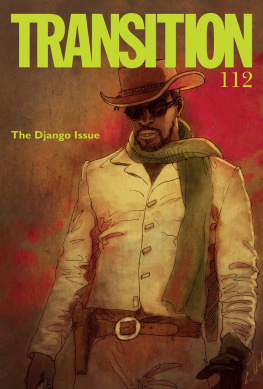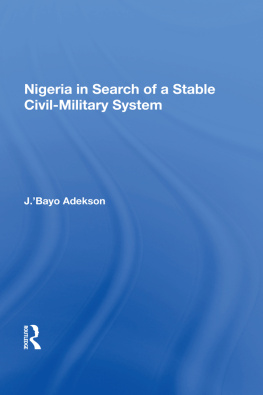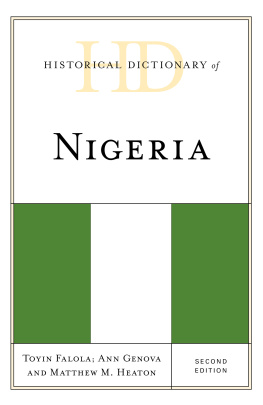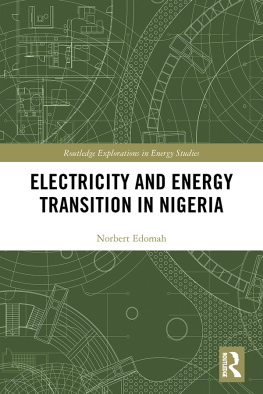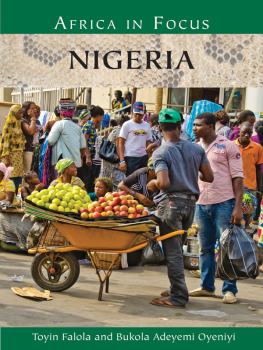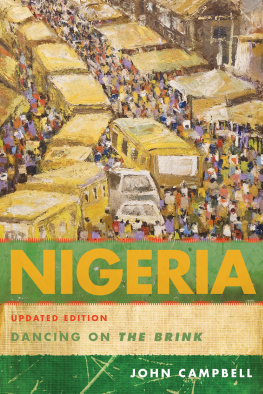IU Press Journals - Transition. 114, Gay Nigeria.
Here you can read online IU Press Journals - Transition. 114, Gay Nigeria. full text of the book (entire story) in english for free. Download pdf and epub, get meaning, cover and reviews about this ebook. year: 2015, publisher: Indiana University Press, genre: Art. Description of the work, (preface) as well as reviews are available. Best literature library LitArk.com created for fans of good reading and offers a wide selection of genres:
Romance novel
Science fiction
Adventure
Detective
Science
History
Home and family
Prose
Art
Politics
Computer
Non-fiction
Religion
Business
Children
Humor
Choose a favorite category and find really read worthwhile books. Enjoy immersion in the world of imagination, feel the emotions of the characters or learn something new for yourself, make an fascinating discovery.

- Book:Transition. 114, Gay Nigeria.
- Author:
- Publisher:Indiana University Press
- Genre:
- Year:2015
- Rating:4 / 5
- Favourites:Add to favourites
- Your mark:
- 80
- 1
- 2
- 3
- 4
- 5
Transition. 114, Gay Nigeria.: summary, description and annotation
We offer to read an annotation, description, summary or preface (depends on what the author of the book "Transition. 114, Gay Nigeria." wrote himself). If you haven't found the necessary information about the book — write in the comments, we will try to find it.
Transition. 114, Gay Nigeria. — read online for free the complete book (whole text) full work
Below is the text of the book, divided by pages. System saving the place of the last page read, allows you to conveniently read the book "Transition. 114, Gay Nigeria." online for free, without having to search again every time where you left off. Put a bookmark, and you can go to the page where you finished reading at any time.
Font size:
Interval:
Bookmark:
Uganda by the late Rajat Neogy and quickly
established itself as a leading forum for
intellectual debate. The first series of issues
developed a reputation for tough-minded, far
reaching criticism, both cultural and political,
and this series carries on the tradition.
 TRANSITION 114
TRANSITION 114Tommie Shelby
Glenda Carpio
Vincent Brown
Gwendolyn DuBois Shaw
Sara Bruya
Adam McGee
Jason Silverstein
Kwame Anthony Appiah
Henry Louis Gates, Jr.
F. Abiola Irele
Laurie Calhoun
Brent Hayes Edwards
Henry Finder
Michael C. Vazquez
Wole Soyinka
Elizabeth Alexander
Houston A. Baker, Jr.
Suzanne Preston Blier
Laurent Dubois
bell hooks
Paulin Hountondji
Biodun Jeyifo
Jamaica Kincaid
Achille Mbembe
Toni Morrison
Micere M. Githae Mugo
Khalil Gibran Muhammad
Eve Troutt Powell
Cornel West
William Julius Wilson
Komozi Woodard, the premier biographer of Baraka, highlights a number of key episodes from the writers life that have impacted how he has been memorialized
Celebrated novelist and sometimes-publisher of Amiri Baraka, Ishmael Reed, explores his complicated relationship with the writer and the Black Arts Movement
Molefi Kete Asante, who included Baraka in his 100 Greatest African Americans, reflects on why he considers him to be one of the greatest American poets
Deborah Willis interviews Barakas daughter Kellie Jones about her fathers impact on her scholarship and curatorial work, including her recent exhibition, Witness: Art and Civil Rights in the Sixties
Nigerian writer and lawyer Ayo Sogunro offers scathing analysis of the legal and social hypocrisy that underpins Nigerias Anti-Gay Law
Anthropologist Rudolf Pell Gaudio elucidates his theory that it is not merely homosexuality, but sexuality writ large, that is in a state of crisis in Nigeria
Transition interviews Nigerian gay rights activist Davis Mac-Iyalla about his work in the Anglican Church and the grave dangers of being out in Nigeria
by Joshua Bennett
Jonathan Roberts presents the surreal, tragicomic tale of a British ex-pat whose dream is to convert a Ghanaian slave fort into a five-star resort, proving yet again that truth is stranger than fiction
Writing from both sides of the Atlantic, Kendra Field and Ebony Coletu go in search of the mysterious Chief Samhero to some, con man to otherswho helped inspire Marcus Garveys Black Star Line
by Spree MacDonald
Led by the research of her incarcerated student, Trey, Micol Seigel uncovers the startling truth of who wins and who loses in the world of criminal bail bonds
byChigozie Obioma
by Gholahan Adeola
Historian Kellie Carter Jackson nuances the claim that 2013 was a landmark year for black films, asking whether audiences are ready for films about black women that go beyond stereotypical single stories
Henry Louis Gates, Jr. interviews Oscar-winning filmmaker Steve McQueen about the process of translating Solomon Northups classic abolitionist text to the big screen
2013 Kehinde Wiley. Courtesy of the artist and Sean Kelly, New York, NY. Used by permission.

Font size:
Interval:
Bookmark:
Similar books «Transition. 114, Gay Nigeria.»
Look at similar books to Transition. 114, Gay Nigeria.. We have selected literature similar in name and meaning in the hope of providing readers with more options to find new, interesting, not yet read works.
Discussion, reviews of the book Transition. 114, Gay Nigeria. and just readers' own opinions. Leave your comments, write what you think about the work, its meaning or the main characters. Specify what exactly you liked and what you didn't like, and why you think so.

